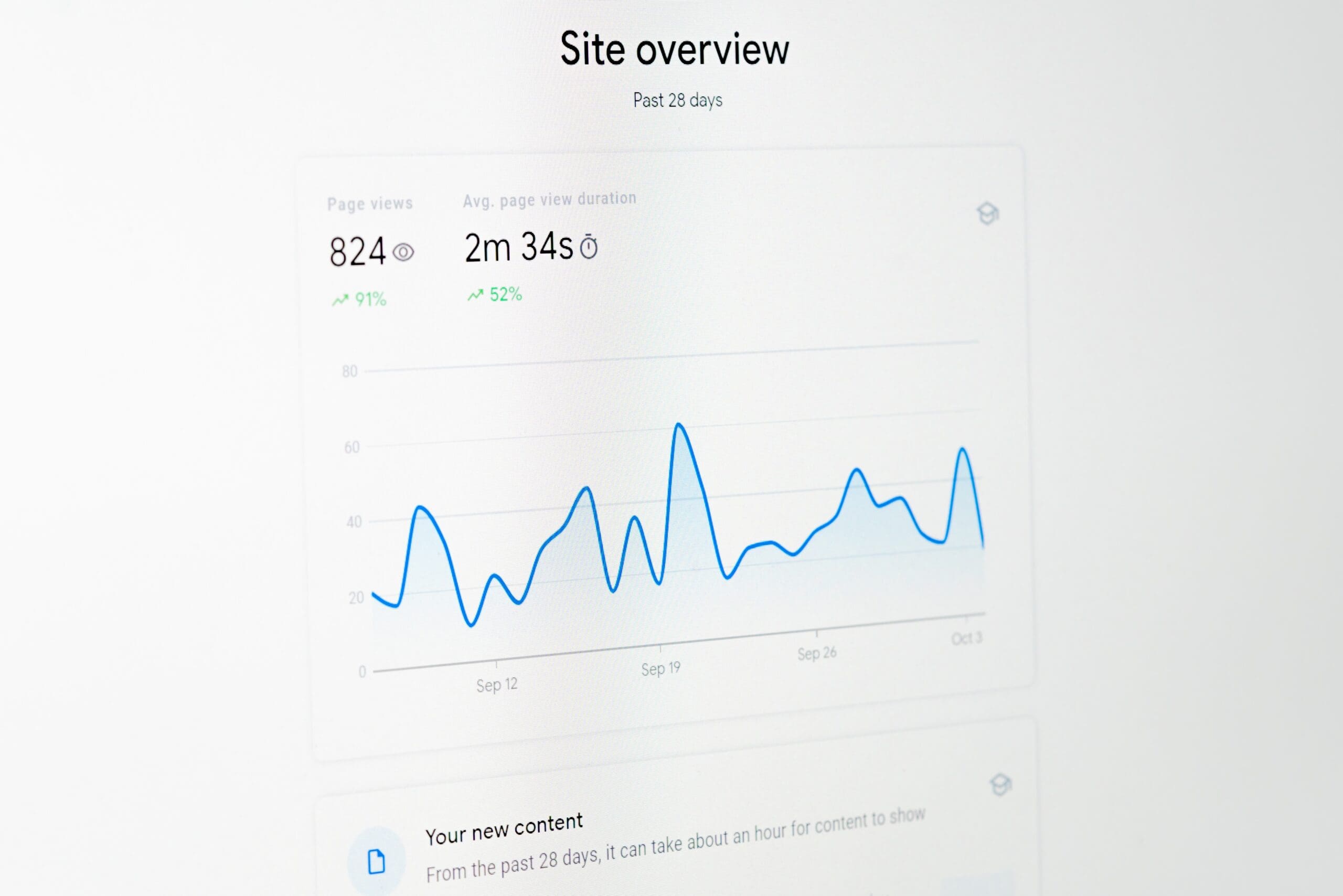Leveraging Website Analytics to Make Smarter Decisions

Website analytics are key in shaping data-driven business strategies. Our deep dive into web analytics for digital marketing shows the power of leveraging data for intelligent, impactful strategies. By embracing, comprehending, and integrating web data analytics into decision-making, businesses can revolutionize their audience engagement, optimize their online presence, and drive growth.
Web Analytics in Digital Marketing
Web analytics is collecting, analyzing, and interpreting data from your website. Website analytics provide invaluable insights about user behavior, website performance, and marketing effectiveness. In digital marketing, web analytics is a powerful tool that helps businesses understand their audience, refine their marketing tactics, and drive better results.
Understanding Web Analytics Data
Web analytics data encompasses a wide range of metrics, including:
- Traffic Sources: Where your visitors come from (e.g., search engines, social media, direct visits).
- User Behavior: How website visitors interact with your site (pages visited, time spent, actions taken).
- Conversion Rates: The percentage of visitors who take a desired action (like making a purchase or signing up for a newsletter).
Businesses can comprehensively understand their website’s performance and user preferences by analyzing this data.
Website Google Analytics: A Prime Tool
Google Analytics is one of the most popular web analytics tools businesses use to monitor their websites. The latest version of Google Analytics, Google Analytics 4, provides detailed insights into website traffic, user behavior, and conversion metrics. By leveraging Google Analytics, businesses can track the effectiveness of their marketing campaigns, understand user pathways, and identify areas for improvement.
The Importance of Web Analytics
Web analytics is vital to digital marketing. It allows businesses to:
- Make Informed Decisions: Base your strategies on data, not assumptions.
- Understand Your Audience: Gain insights into who your visitors are and what they want.
- Track and Improve ROI: Measure the effectiveness of your marketing efforts and optimize for better returns.
Leveraging Web Analytics for Smarter Decision-Making
To truly benefit from web analytics, businesses must adopt a proactive approach. Here are key strategies to leverage web analytics effectively:
Setting Clear Goals and KPIs
Define what you want to achieve with your website and set specific, measurable KPIs (Key Performance Indicators). This could include increasing traffic, improving conversion rates, or enhancing user engagement.
Regular Monitoring and Analysis
Regularly review your analytics data to track progress and identify trends. This involves looking at the numbers, being curious, and understanding user behavior and preferences.
Segmenting Data for Deeper Insights
Segment your data to gain more nuanced insights. For example, analyze new visitors’ behavior versus returning visitors or compare traffic from different sources.
Integrating Analytics with Marketing Campaigns
Use analytics data to inform and optimize your marketing campaigns. This includes targeting your campaigns based on user demographics, interests, and behavior patterns identified through analytics.
Conducting A/B Testing On Your Website
A/B testing is a great way to test the performance of different website elements, such as headlines, CTA buttons, or page layouts. The results will show you what’s working on your website and what isn’t.
User Experience Optimization
Analyze user behavior data to identify where users are hitting snags and opportunities for improving the user experience. This can involve optimizing website navigation, speeding up page load times, or making your website more mobile-friendly.
Actionable Reporting
Create reports that translate data into actionable insights. Rather than overwhelming stakeholders with raw data, focus on key findings and recommended actions.
Final Thoughts
Using web analytics in marketing is about using data to make smarter, more informed decisions. In digital marketing, data is critical, and leveraging web analytics is essential for understanding your audience, improving strategies, and achieving your business goals.





